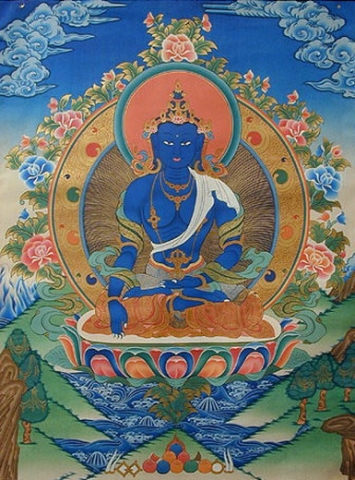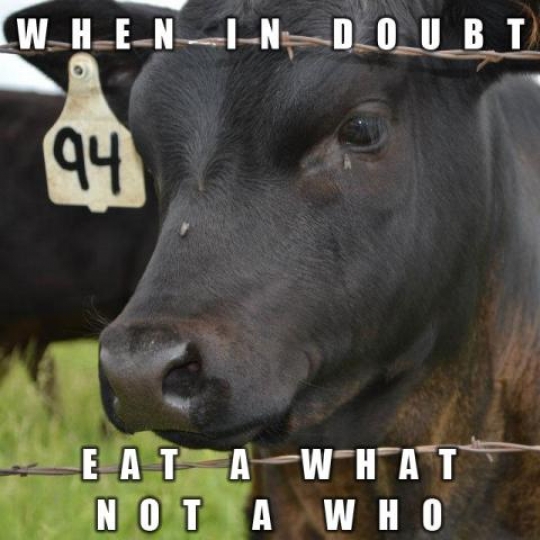To be an activist, very often, is to be angry.
An activist is a person with a sacred vision of the world that they are trying to manifest. That means living in a world that runs counter to what you hold most sacred. Otherwise, what are you acting for or against? And in my experience, activists aren't just working for a world that would be nice, but fighting for the world that they believe should be. That’s not always emotionally easy.
And when you’re out there doing your work – whether that’s protesting, lobbying, leafleting, talking with your friends about the issues you care about – you’re basically dealing with people who disagree with you. They may be actively working against what you hold most sacred. That can be outright maddening.
Anger can be extremely effective in some cases. It can give you the necessary energy, passion, and even commitment to get something done. In a physical altercation it can give you the strength you need to protect yourself or others. It can give you the first initial motivation to get out and do something.
But if you want to change the world, you can’t do it on anger alone. Left unchecked, anger can become bitterness. It can become nihilism, misanthropy. It can really hinder your work or even make you give up.
Am I against anger? No, not exactly. But I am for skillful means. Meaning, there are times when it’s better to honor the anger, hear what it’s trying to tell you, and then take a moment to decide the best course of action instead of charging blindly wherever anger leads.
Tibetan Buddhism teaches the concept of coemergence. Buddhist teacher Ethan Nichtern describes it as “the ability of any particular phenomenon or experience to manifest as either wisdom or confusion, helpful or harmful, a weapon or a prison.” The idea goes that there are five basic mind-states, which aren't inherently good or bad. From each of these basic mind-states, we can go down either a wise or a confused path. Relevant here, the mind-state Vajra can lead to clear-seeing or to anger. In this worldview, clear-seeing and anger are closely related and share the same root. These five mind-states are symbolized by five Buddha families.
Pick an example from a cause that matters to you. What makes you angry? What kind of posts do you see on social media that just drive you crazy? Really take a minute.
I’m guessing whatever example you picked involved a perceived injustice or a threat to you or someone/something you hold dear. In fact I've started to see anger, or its wise aspect of clear-seeing, as an “injustice sense.” Vajra’s clear-seeing is like the Tarot suit of swords, sharp in its analysis.
I like this way of looking at anger. It respects the emotion while also respecting its potential for misuse and destruction. Think back on the example you came up with. Was there a sense of injustice there? Before you thought up a punishment you might want to inflict on the person who roused your wrath, before you thought of some angry words to throw, maybe even before your emotional reaction... was there a moment of stillness where you just thought, “This is wrong”?
Maybe anger is somewhat the opposite of a pearl. A pearl starts with an annoying grit of sand, which a bivalve starts to cover in successive coatings of smooth mother-of-pearl to protect itself from the irritant. (BTW, buying pearls – so not vegan. Pearls are for bivalves). Anger is perhaps a similar process. We start with a single, clear perception of injustice, and then start to heap a bunch of other things on top of it.
What do I do when angry? Well, if I’m honest, usually I just stew in it, bury it, or gripe. But on those days that I’m being more mindful, I look for the kernel of truth, of clear-seeing, at the heart of it. My practice, when I remember to do it, is to seek out that sense of injustice and to honor it, acknowledge it, and liberate it from the rest. I let anger be my injustice sense. Until I do that, I’m trapped in whatever my reaction is, and that’s usually either over-kill or stony silence. Neither are exactly effective, either in relationships or in activism.
How do I do that? Well, sometimes, by carrying my anger to ridiculous extremes. Internally, of course. Indulging in revenge fantasies. I imagine that I could say anything I want to the person I’m angry at. In those internal rants, which might look something like a Jungian active imagination session, I usually wind up becoming pretty eloquent. Because my imaginary opponents always ask me good questions. And ultimately I wind up saying, “You were unjust when you did _________, and I want you to know that, apologize, and make it right.” It pretty much boils down to that, across the board, from someone cutting me off in traffic to someone threatening a loved one. If nothing else, ramping up my anger gets so ridiculous that I laugh.
That only really works when I have the time and privacy. But it’s really instructive. Maybe you’ll find some different kernel of truth underneath your anger, and that’s cool too.
And since I've been talking about clear-seeing and kernels of truth, once you've calmed down I recommend examining the situation to see if there really was any injustice done. Something that’s really helped me in that regard is the Four Levels of Reality tool. It’s a bit beyond the scope of this blog, but Shauna Aura Knight has two good articles that talk about it. http://shaunaaura.wordpress.com/2014/01/09/hypersensitivity-freezing-ove... and http://shaunaaura.wordpress.com/2014/01/27/conflict-resolution-part-1/
So, why bother with any of this? First off, there’s plenty of personal benefit. I used to be angry all the time. Maybe I just have a really high sense of injustice. Maybe I just wasn't always very forgiving. But I’m unspeakably happier now that I’m not so angry all the time. And I’m better able to relate to people, and therefore better able to reach people, by looking for that Vajra. It’s one thing to feel angry, offended, outraged. It’s quite another to seek the heart of it, dialogue with it, and just sit with it for awhile. Entirely different solutions emerge.
Martin Luther-King Jr. said, “You can have no influence over those for whom you have underlying contempt.” I take it to mean that by influence, he means changing hearts and minds. Sure, anger and contempt can fuel a lot of change – a lot is accomplished by war, for instance. And a lot can be accomplished by shaming perpetrators. But to create the deeper and lasting kind of change so many of us are trying to create, anger can’t be our only tool. People, oddly enough, don’t respond well to contempt. Go figure. I talk about this a lot.
People say that if you’re not angry, you’re not paying attention. I get angry as hell. How could I not? There are more than 10 billion land animals killed every year, needlessly, for human food. In America alone. That’s a number so high it almost loses meaning. The oceans will be dead in 20 years if we don’t stop it, and that’s due largely to eating fish but also to toxic run-off from eating other animal products.
As an early vegan, I was horrified at the things I was finding out and I was dismayed and angry that other people weren't changing with me. That hasn't changed, so much, because I think it’s right to be horrified. But man, staying in that anger would cripple me.
I've learned instead to be inspired by my sense of injustice. Seeking out the wise aspects of anger, and leaving off any sense of revenge, leaves me with a vision of justice and a vision of the kinds of restoration I want to manifest.
Not because I think it’s wrong to be angry, but because it’s more skillful and just feels better. Imagine that anger is a powerful energy source. Liberating that energy from revenge fantasies and fruitless interactions means more energy to devote to actually accomplishing what anger sets out to do. Looking for the clear-seeing allows me to be more precise and skillful. When I seek out the heart of my anger, I recommit to a vision of justice and restoration.
What will you commit to?




Leave a comment!